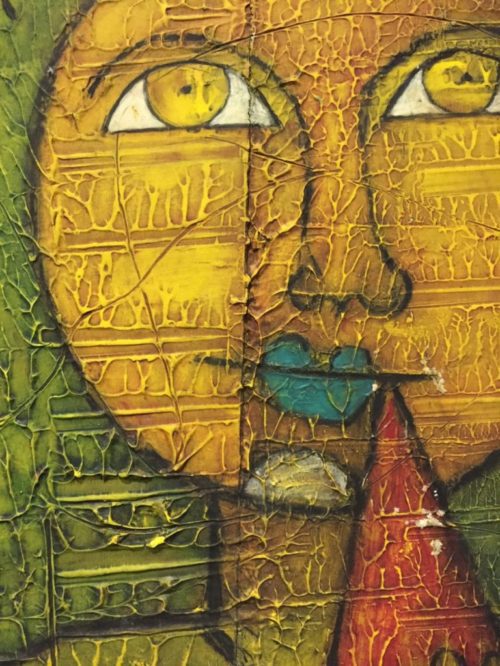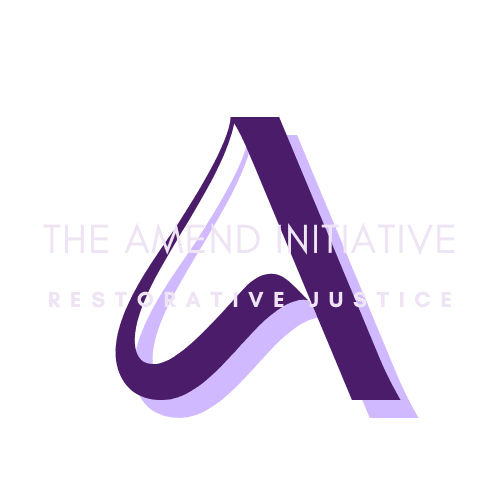What Restorative Justice Offers
Restorative Justice is an approach that focuses on addressing the harm to individuals and the impact on human relationships that result from a conflict.
Addressing the Harm
A Restorative Justice (RJ) process invites a person responsible for harm and the party harmed by wrongdoing to meet and address the impact and figure out if there is any way to make the situation better. RJ creates an opportunity for survivors to describe their losses and regain or balance a sense of meaning and connection. When the option of RJ is available, people who have been impacted by a crime can choose to participate in a facilitated RJ meeting before, during or after a criminal sentence has been determined.
Every act of harm, misunderstanding, and the infliction of pain has two parts: intent and impact.
Accountability
When a perpetrator faces a victim the process begins the understanding of what happened and the impact of their behavior on others. RJ is a means for people who have caused harm to demonstrate accountability to victims, for the community, and in themselves. Individuals, families, supporters, and communities can closely examine choices, the impact of choices and the needs they represent, and what is needed to acknowledge and repair the harm.
RJ invites participants to ask human questions. To listen to human answers. By inviting the parties to use RJ approaches, people can both identify their own needs and learn more about the needs and rights of others. RJ and Victim-Offender Dialogues (VOD) for violence-impacted people are voluntary and safe. Each person who participates in RJ/VOD is guided and prepared for the meeting by a trained facilitator who individualizes the questions for the circumstances of the crime and people involved.
The Amend Initiative
The Amend Initiative offers 1) Training about restorative justice approaches through a variety of workshops tailored to meet the needs of victims, offenders, and communities, and 2) Facilitation of a safe meeting between all individuals affected by a crime, wrongdoing, or harmful behavior.

Whom Do We Serve
The Amend Initiative can make a difference in the resolution of a criminal case for victims as well as for those who have caused harm.
Addressing and acknowledging harm is one of the greatest challenges throughout our lives. If you have experienced or caused harm, or if you are an attorney, employer, or victim advocate who is interested and invested in identifying ways to address and resolve a criminal or any harmful action, please reach out.
The Amend Initiative provides training and facilitation for restorative justice meetings, and individualized preparation and support. Contact us to discuss fees for services.
Between stimulus and response, there is a space. In that space is our power to choose our response.
~Victor E. Frankl
Testimonials

What participants have said after a Restorative Justice meeting
5 Lessons I’ve learned from Restorative Justice
- It’s important to hear and understand the context of a person’s life. It is often a combination of shifting into or out of the stress of goals and setbacks, settling into habits, and the process of figuring stuff out along the way. It is helpful to view conflict within a context of the lives of the people involved–and doing so can help identify needs, see how life experiences have shaped a person, and how conflict is viewed and experienced by the parties impacted by harm.
- We suffer from our beliefs of others. We each have and hold some powerful ideological labels and views of what it means to be human. Restorative justice (RJ) can shake that up by inviting the people participating to look at the “other” with a different, and more humane lens.
- People are more than labels. When we are willing to share, listen, and recognize humanity we understand profoundly that people aren’t just one thing: perfectly tolerant and benevolent, or pure evil. People become many things by the circumstances that occur and exert pressure on their choices and behavior. To ignore this means deep divides and the tragedy of broken lives will continue.
- Suffering and self harm can be softened and prevented through human nature and human connection. The stronger our connection is to other humans, the more likely we are to value and respect humans. We know this instinctively: the weaker our awareness of our interdependence and connection is to natural resources or endangered species, the less likely we are to protect them.
- When we expand the choices that can address and repair harm following a conflict, we all benefit. Accountability means acknowledging responsibility, hearing the impact of harm, and behaving in a manner to repair it and the people affected. Repairing the harm and rebuilding relationships in the community is the primary goal of restorative justice.
